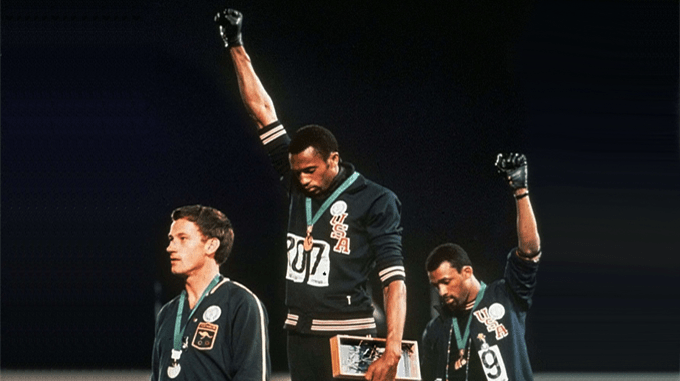Search the latest and greatest job opportunities in sport

Towards the end of last year the US Department of State, Swiss Federal Department of Foreign Affairs, and global think-tank the Institute for Human Rights and Business (IHRB) hosted The Sporting Chance International Forum. This high profile international forum brought together athletes, governments, sports bodies, sponsors, broadcasters, community leaders, trade unions and NGOs to speak about how the world of sport needs to change in order to put people back into the centre of what has become a global industry. Here John Morrison, Chief Executive of the Institute for Human Rights and Business addresses the principles that underpin the aims of the forum and the commitments required for change.

Mega Sporting Events inspire humanity and have the power to bring people together under the banner of friendship and mutual understanding. They also have the potential to bring many societal benefits, particularly to the host country. These benefits can include job creation, improved transport and digital infrastructure; urban regeneration and new public housing; increased sports participation and healthy living; and the pro- motion of positive attitudes with regard to sustainability, diversity and towards excluded and vulnerable groups, including children, women, migrants and refugees, LGBTI individuals, and persons with disabilities.
However, Mega Sporting Events are also complex, with a life-cycle from bidding through to construction and delivery requiring a years- long planning process. As such, these events carry inherent risks, including preventable adverse human rights impacts. Despite their benefits, Mega Sporting Events, virtually without exception and across all hosting countries and continents, have been linked to human rights abuses. These include forced evictions; unsafe working conditions in the construction and infrastructure sectors; migrant worker vulnerability; sweat- shop conditions and child labor in merchandise and supply chains; restrictions on freedom of association, peaceful assembly and expression; clampdowns on homeless people and street children; discrimination on and off the field of sport; and corruption and security issues. To further such efforts, the 2016 Forum launched a set of principles that aim to underpin the common goal of ensuring that Mega Sporting Events showcasing the best of humanity are built on respect for human rights throughout their lifecycle.
Put simply, these principles are:
Now, of course, making human rights a reality within the sports industry is easier said than done. Although major sports bodies such as FIFA, the IOC and the Commonwealth Games Federation have all made human rights commitments, implementation will be the biggest challenge over the months and years ahead. There are two critical tests: (i) can human rights become key criteria for future bidding rounds and (ii) can hu- man rights be applied to hosts that have already been selected? FIFA have already committed to making human rights part of its 2026 Bid Book, and we can expect similar moves in relation to the 2026 Winter Olympics, 2026 Commonwealth Games and the 2028 Summer Olympics. But what about FIFA events in Moscow 2018 or Qatar 2022, IOC events in Pyeongchang 2018, Tokyo 2020 or Beijing 2022 or Commonwealth events in Gold Coast 2018 or Durban 2022? The answer must be, the best possible given the leverage available – no one can afford to wait 10 years before we see hu- man rights on and off the field of play.

The collective action seen at the Sporting Chance Forum needs to deepen during 2017 with specific commitments not just from sports bodies, but also governments, sponsors, suppliers and broad- casters. Martina Navratilova set a challenge to us all, wherever we might sit in the supply chain of sport: “In my experience, great athletes, great role models, great business leaders always have a basis for action. In the face of change and challenges, they must make the tough choices, get involved in correcting injustices, and be accountable for the outcome. They can’t be paralyzed by change or uncertainty – they have to be able to size up a situation quickly and take clear, decisive action.”
This article was originally published by our partner the WFSGI (World Federatation for Sporting Goods) in their annual magazine .
Give your career in sport a boost with the latest live vacancies , or create an account today and stay up to date with all the latest industry knowledge, events and jobs in sport.
Search the latest and greatest job opportunities in sport